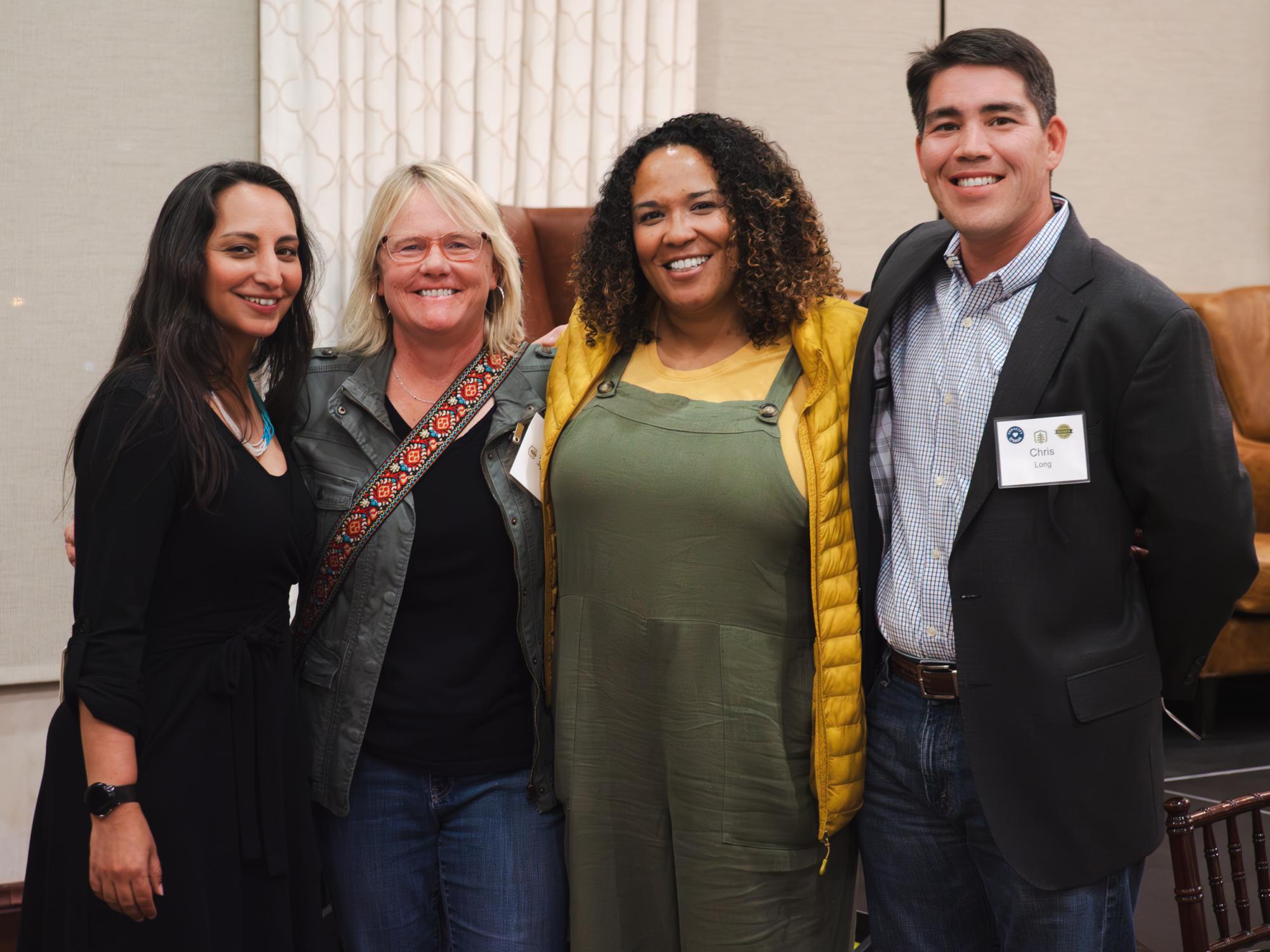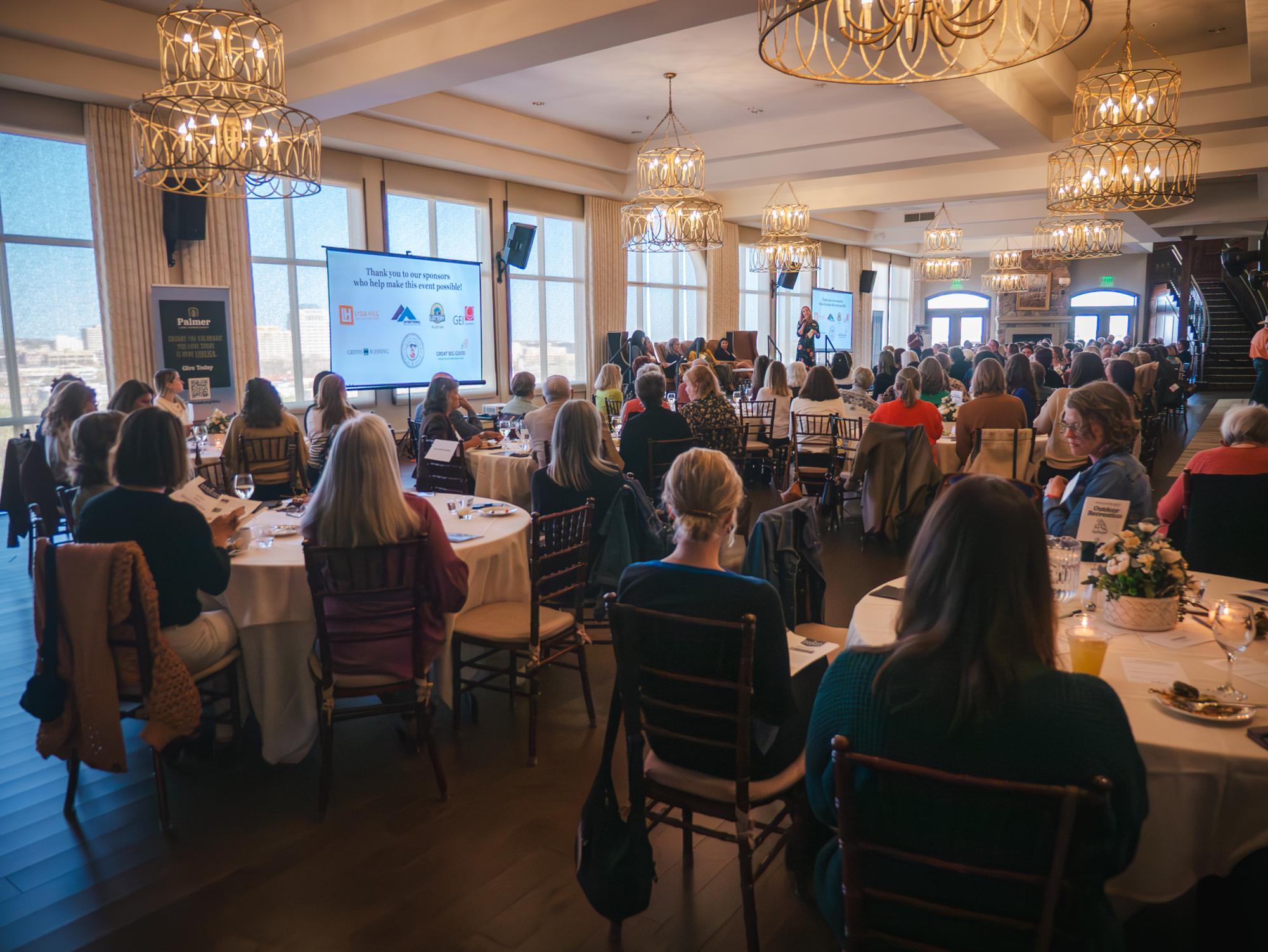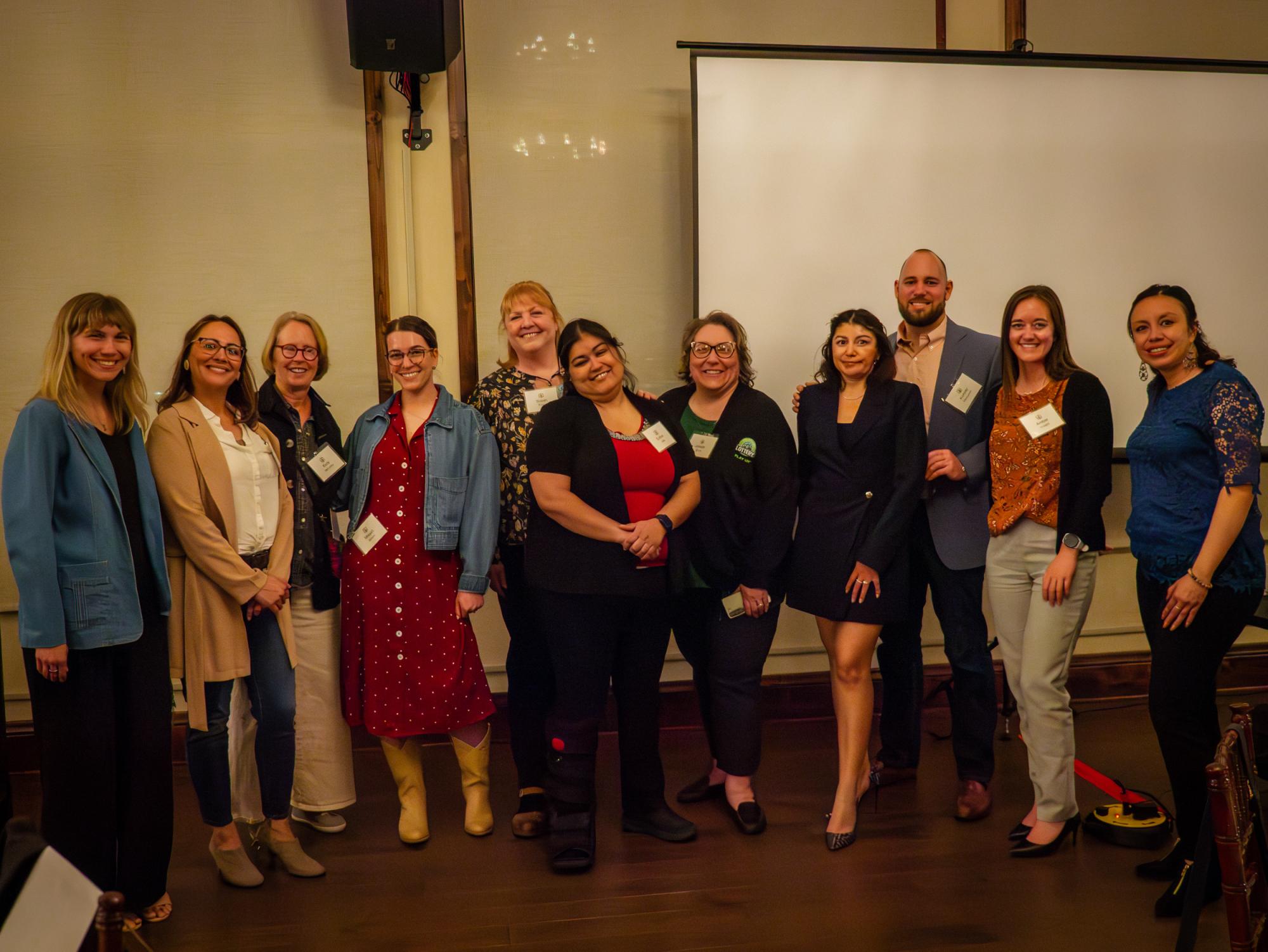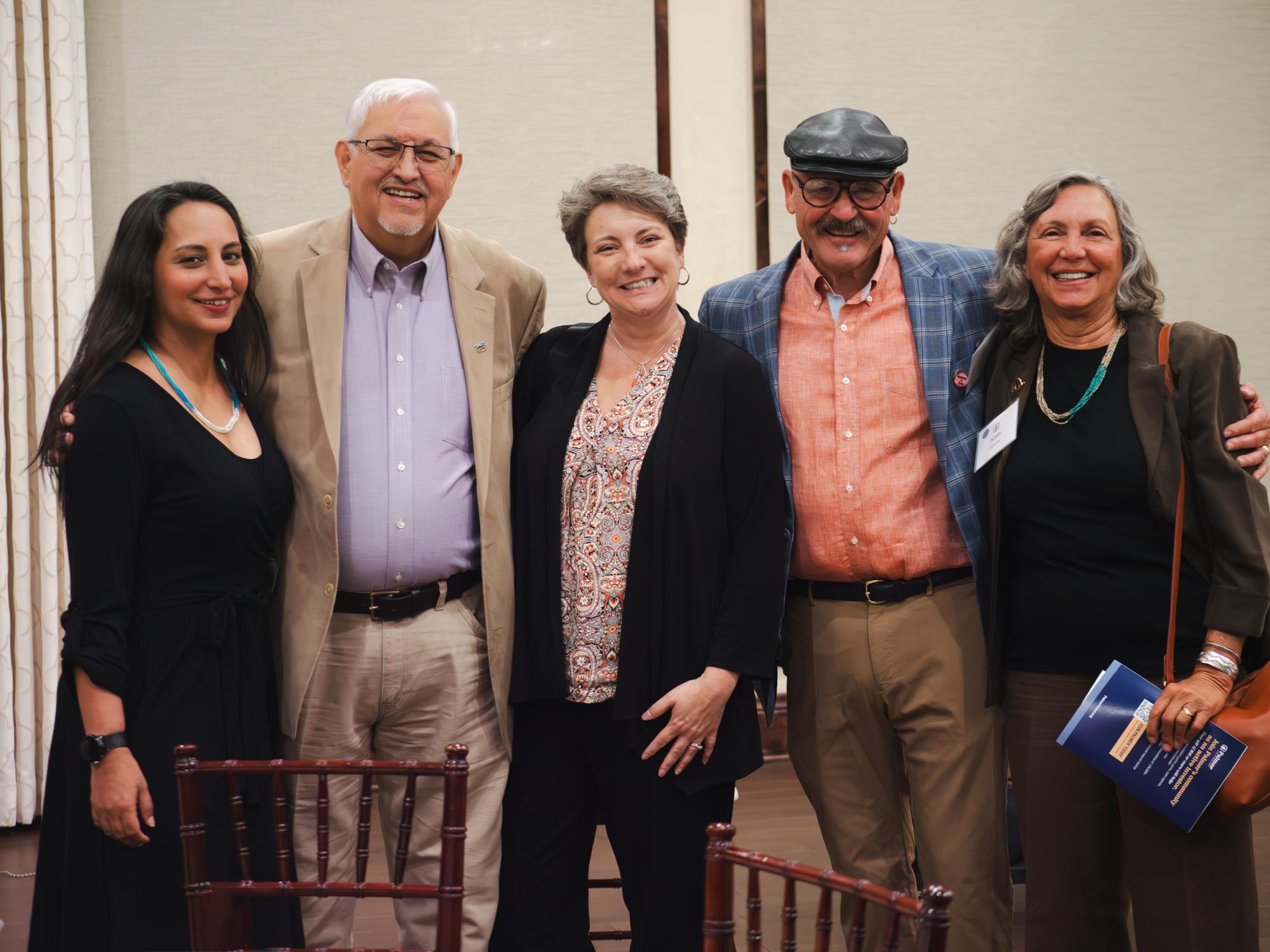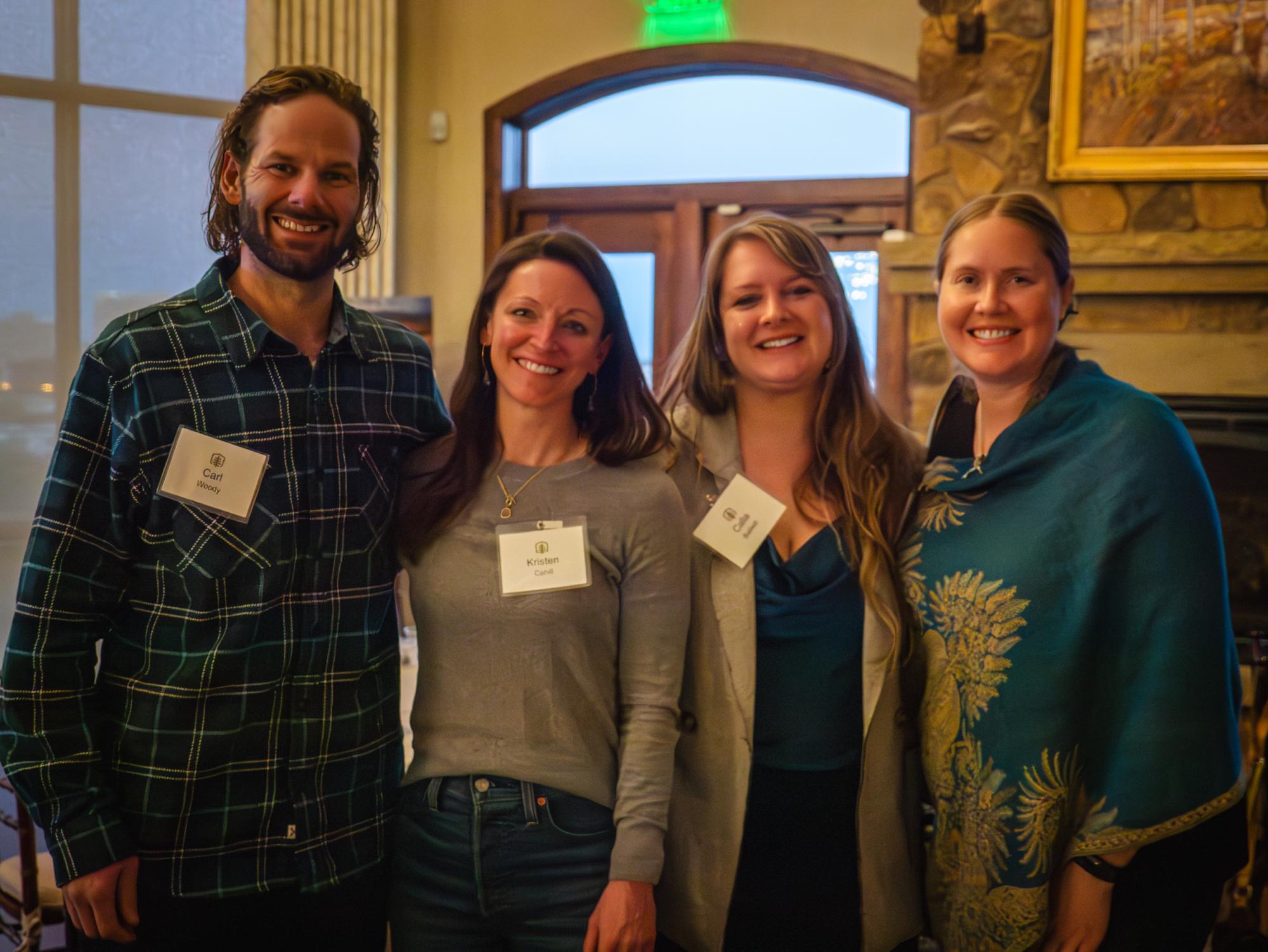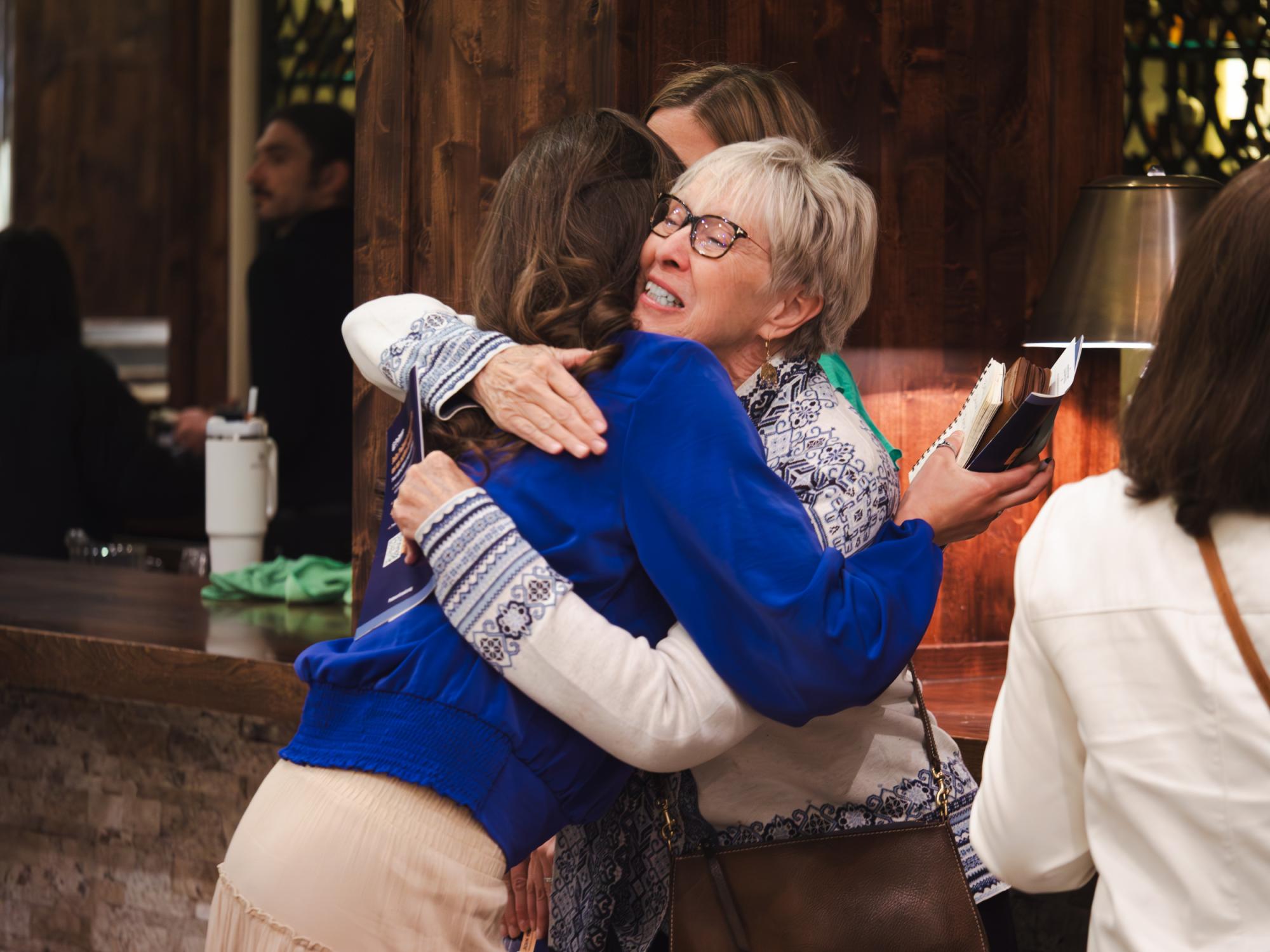As Colorado grows, protecting what makes our home special is vital.
Join us in conserving the land and water that unite us.
Vibrant energy filled the room during Palmer Land Conservancy's 9th Annual TENACITY: Women in Conservation event. What started as a backyard gathering has blossomed into an annual event that brought more than 160 people together this year. Passionate advocates, community leaders, and nature lovers gathered to explore how conservation serves as the thread connecting communities across Colorado. The atmosphere was hopeful and determined as speakers brought insightful perspectives and shared their unique visions for broadening the conservation movement. As a community-driven conservation leader, Palmer values diverse perspectives, which enrich the conversation, so this year’s event featured six prominent women working in various sectors connected to conservation.
As Rebecca Jewett, President and CEO of Palmer Land Conservancy, framed it, conservation serves as "the hub of connection" and the "throughline" to what makes Colorado special. Throughout the evening, the theme of “conservation as a connector of people and a connector of communities beyond the land and water protection itself” resonated as speakers wove together stories of land protection, community building, and access to healthy open spaces.
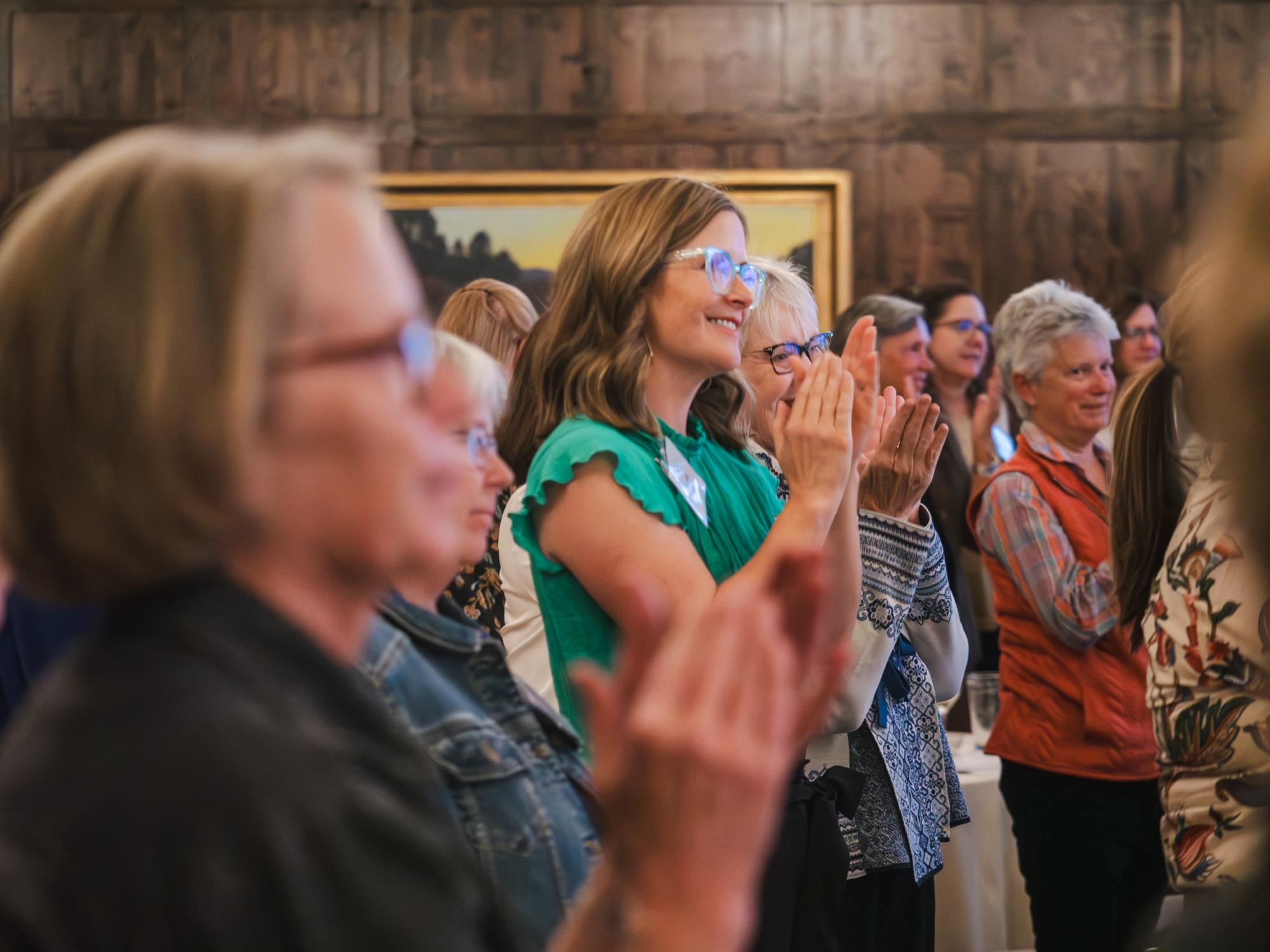
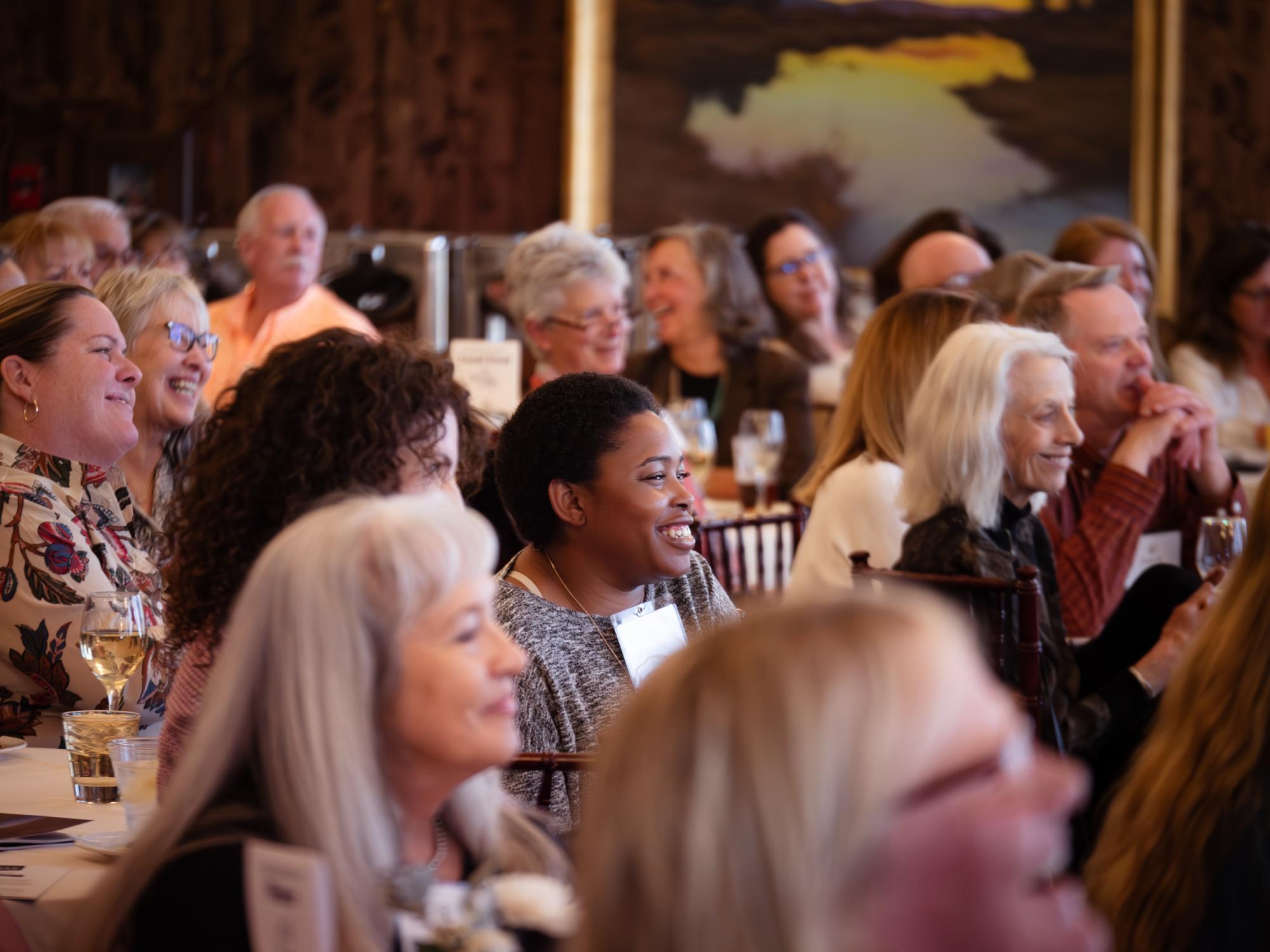
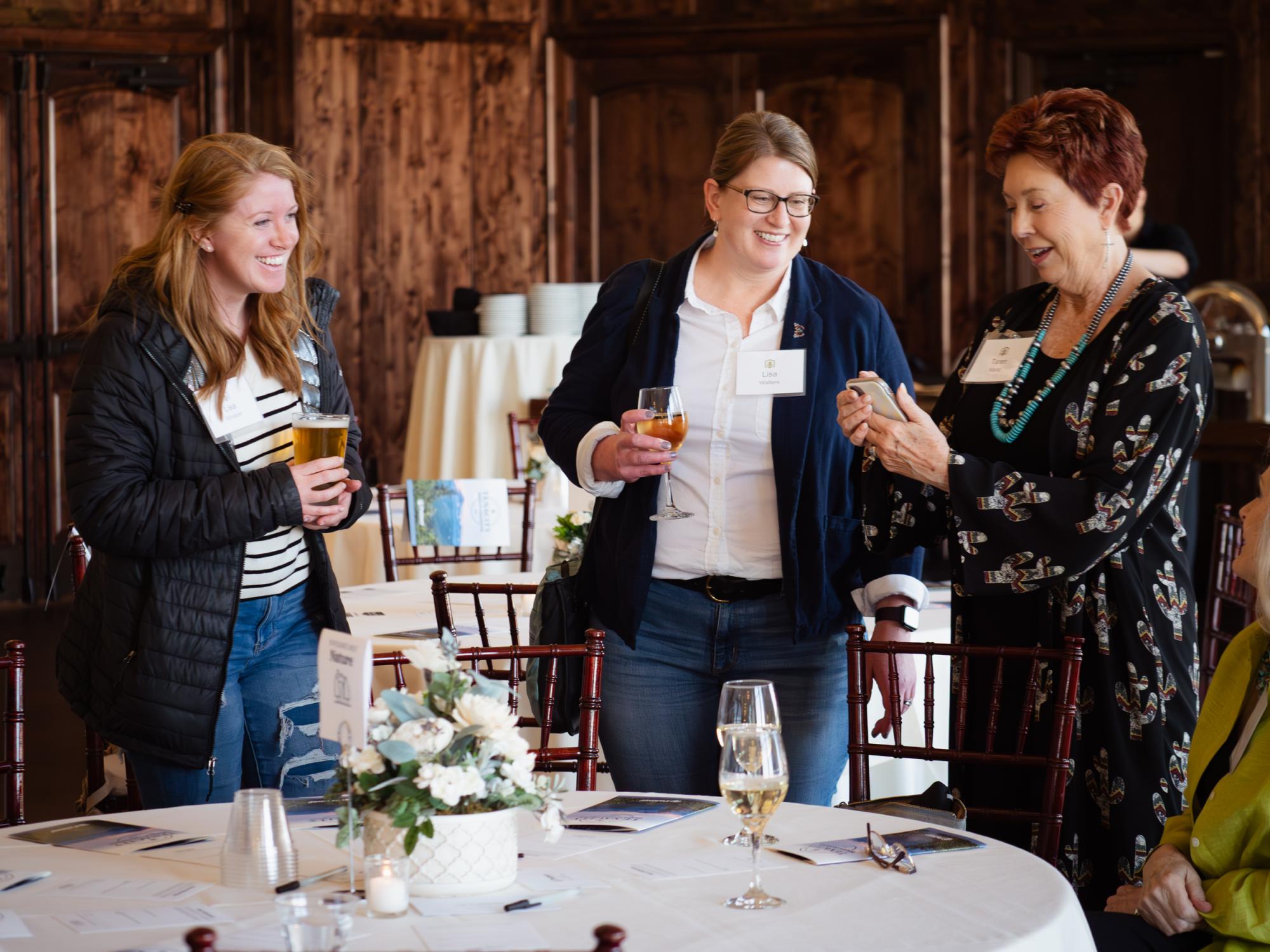
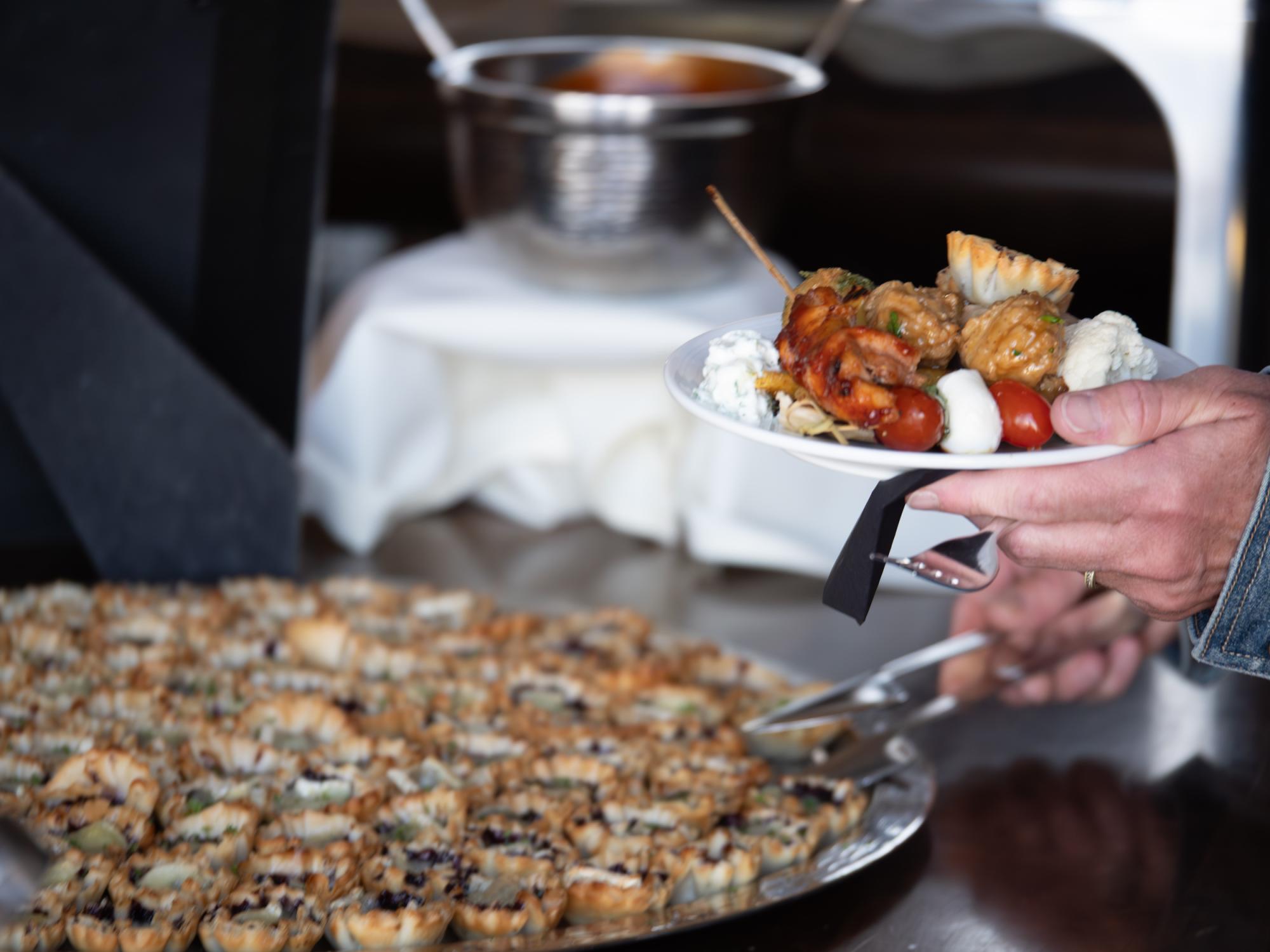
Patience Kabwasa, Executive Director of Food to Power, brought a powerful perspective on breaking down barriers that traditionally limit those who see themselves as part of the conservation movement. "These spaces can be very homogeneous, and there are lots of barriers to this conversation… We need to cut down the barriers. Decentralize this conversation...we are all conservationists," she emphasized, challenging attendees to broaden their understanding of what conservation looks like in practice.
Patience's work connects food systems to conservation, highlighting how "reciprocity with the land is a part of all of our stewardship." Her vision includes creating spaces "where people can connect in community around food, but also environmental stewardship," demonstrating how conservation touches our daily lives in ways we might not immediately recognize.
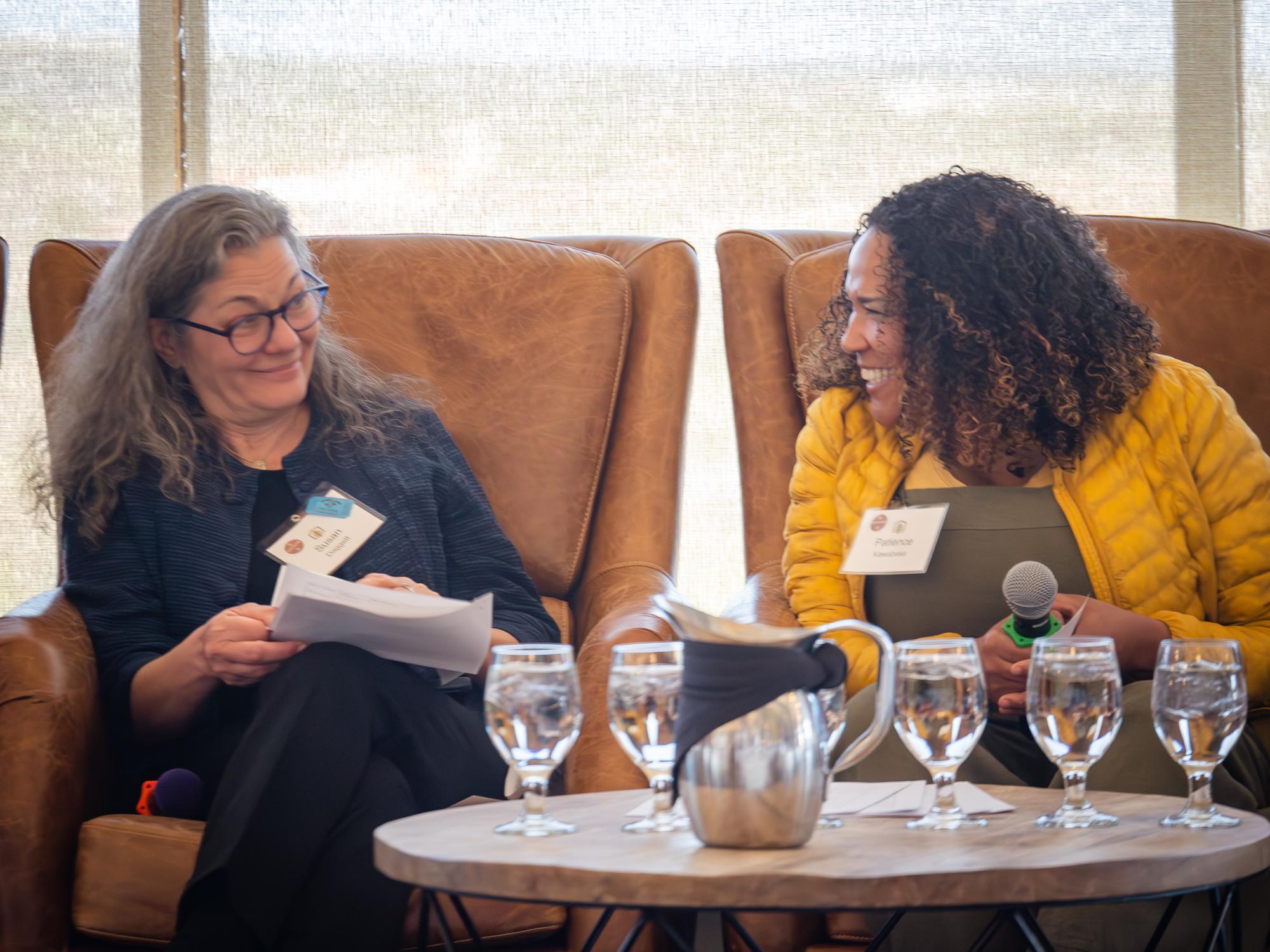
Anna Cordova, lead archaeologist for Colorado Springs and manager of Garden of the Gods Park, brought a perspective with indigenous roots that deepened the conversation about our relationship with land. "Humans are part of the ecosystem, and that is something that has been lost for a long time, I feel like in broader culture," she noted. "We're not separate from the ecosystem. What we do impacts everything."
Cordova's work embodies the principle that conservation isn't just about setting aside pristine wilderness—it's "an everyday action that we take whether we realize it or not." Her approach to land management incorporates indigenous wisdom, including the concept of "looking ahead seven and eight generations" when making conservation decisions. At Garden of the Gods, she faces the challenge of "loving it to death" through overuse, reminding us that education and mindful stewardship are essential for conservation.
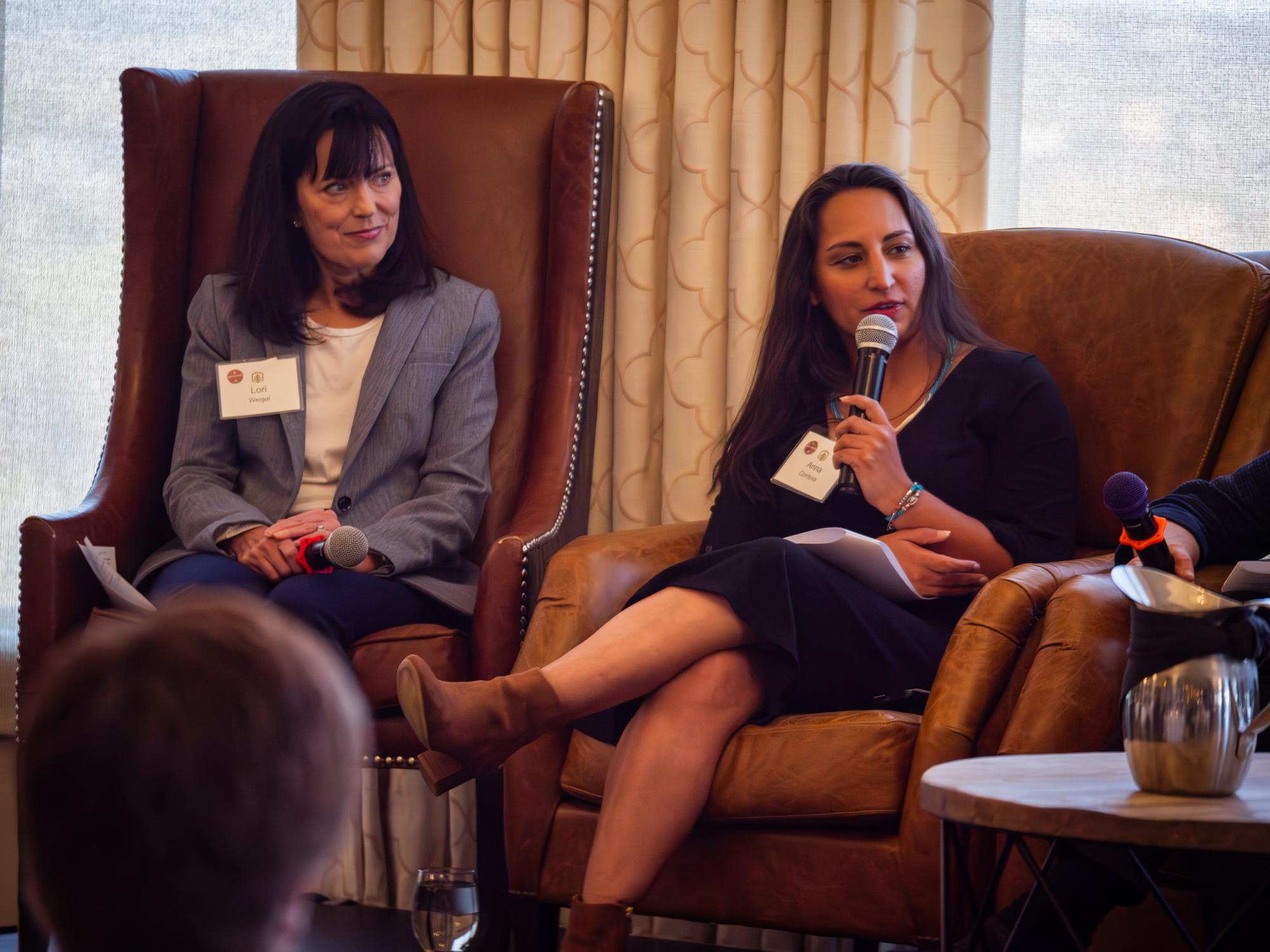
Susan Daggett, Professor of Law and the Executive Director of the Rocky Mountain Land Use Institute, offered a compelling vision of how conservation principles can guide community development. "I see urban planning and zoning and transportation and housing, and how we build our communities through the lens of conservation and environmental protection," she explained. This perspective recognizes that “we have to figure out how to live in an ecosystem that we hopefully can figure out how to coexist within and operate within, so that both nature and people can thrive.”
Susan's work demonstrates how conservation extends beyond traditional boundaries, influencing how we design neighborhoods, transportation systems, and public spaces. She advocates for an “approach to nature [that] can really benefit communities in significant ways," even with small parks, to improve the quality of life in urban settings.
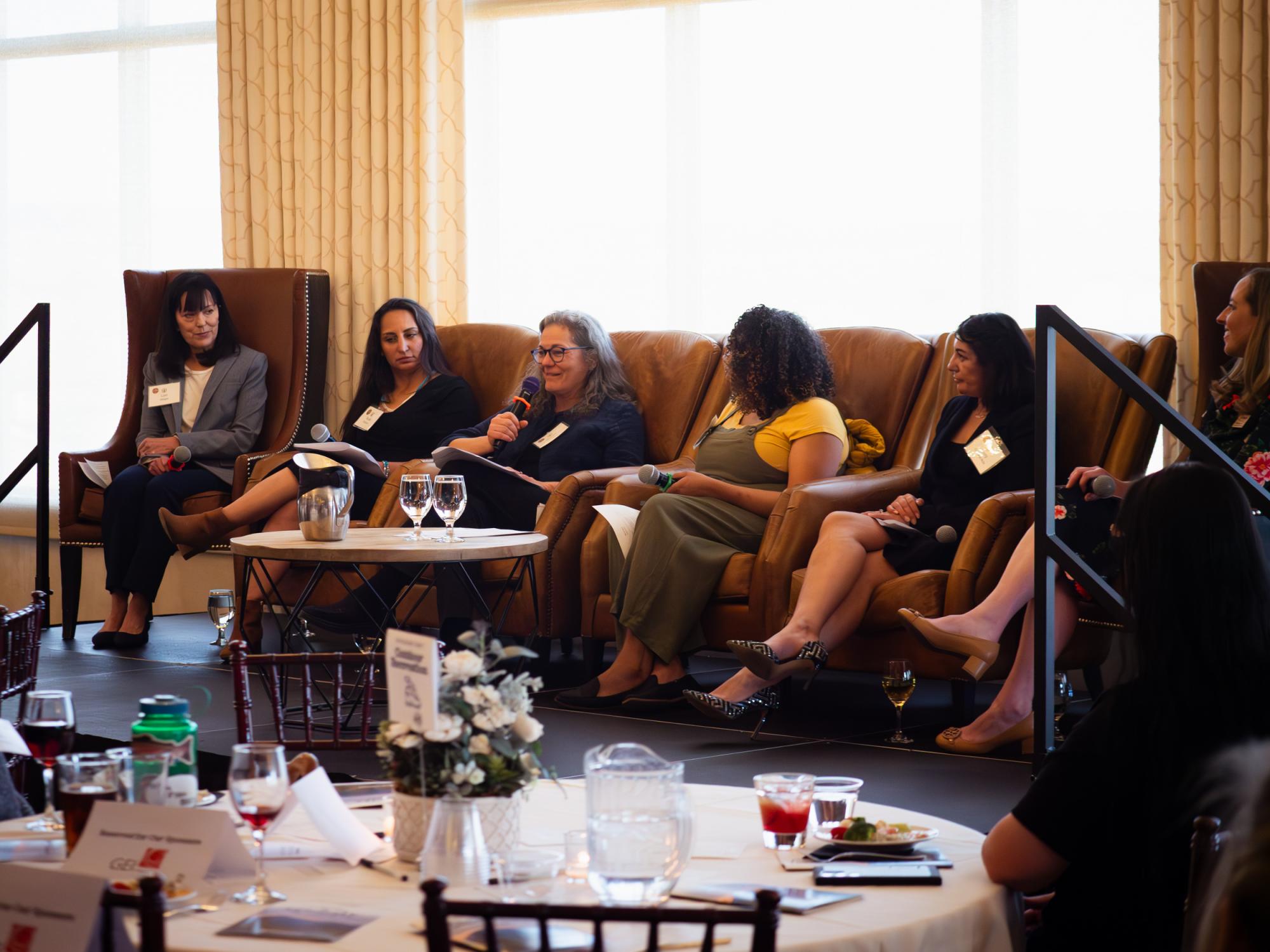
Yenny Espinosa Niño, Outdoor Equity and Education Director for the Boys & Girls Clubs of Pueblo County, brought optimism and energy to the conversation by connecting young people in Pueblo to the outdoors. “We have youth who do not have a lot of access to these outdoor spaces,” she shared. “They don't feel safe in their neighborhood, and so outdoor access is so important and just being able to see them go out there and be kids is huge.”
By creating opportunities for young people to experience nature firsthand, Yenny helps broaden the range of people who see themselves as connected with the land. Her work reminds us that early connections to the outdoors can spark lifelong commitments to stewardship and community care.
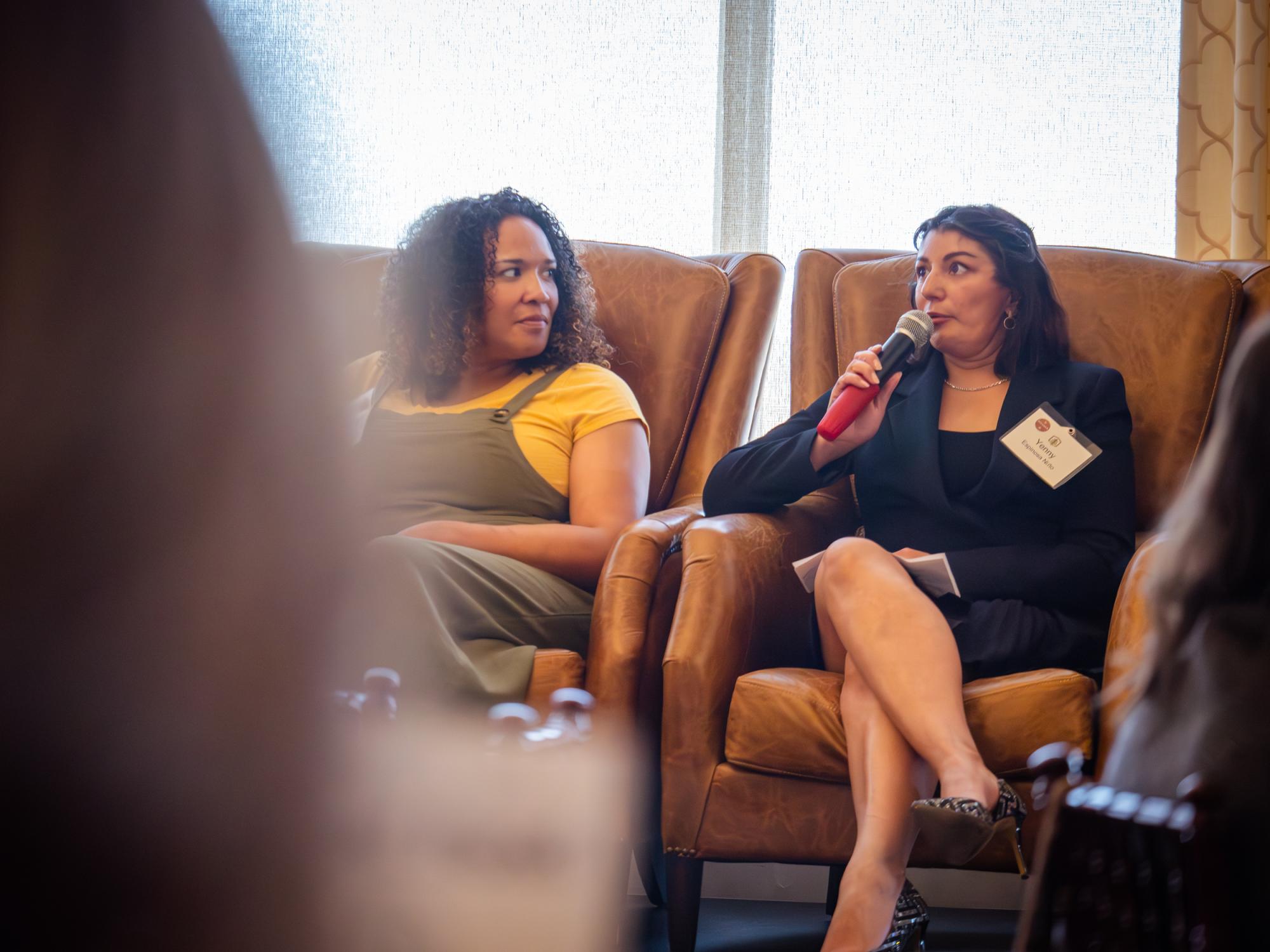
Emphasizing the importance of making conservation relatable and personal, Lori Weigel, founder of New Bridge Strategy, shared insights from her extensive experience in opinion research related to conservation issues. Her approach to building bridges across perceived divides was compelling. Describing herself as a "conservative conservationist," Lori emphasized that the first step in creating connection is listening and understanding how people talk about issues that matter to them.
She shared personal wisdom about navigating challenges, she shared a favorite quote by Colorado Springs minister, Paula Stone Williams, "the only people who don't get lost are the ones who don't go anywhere," and offered a mantra for when we feel stuck: "get close, get curious, and get creative." Throughout her conversation, Lori demonstrated how conservation can be framed in ways that resonate across political divides by focusing on shared values, such as family experiences in nature, clean air and water, health benefits, and creating opportunities for children to connect with the outdoors.
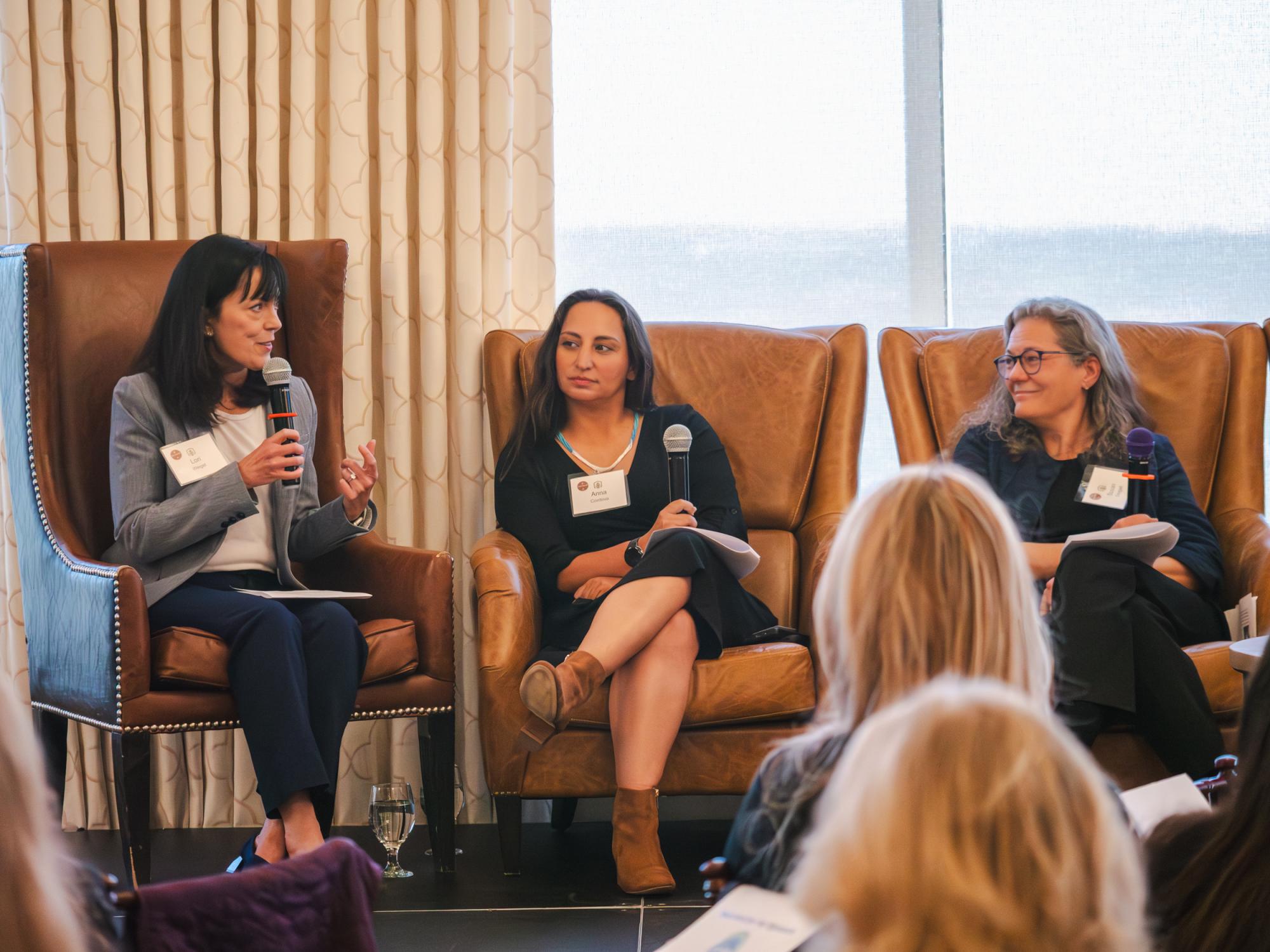
As the evening drew to a close, Rebecca invited attendees to carry the conversation beyond the event. "If you heard something tonight that inspired you, maybe got you thinking about something in a different way, maybe something that challenged you, go back and share it with your circle of influence."
This call to create a ripple effect embodied the event's emphasis on connection and community. Rebacca reminded everyone that "the real power of conservation is connecting people through a joint mission. It's that love of food, it's love of culture, it's that sense of place, and it's all those ingredients that make Colorado an amazing place to live." Each conversation shared and each new perspective considered contributes to broadening the conservation movement.
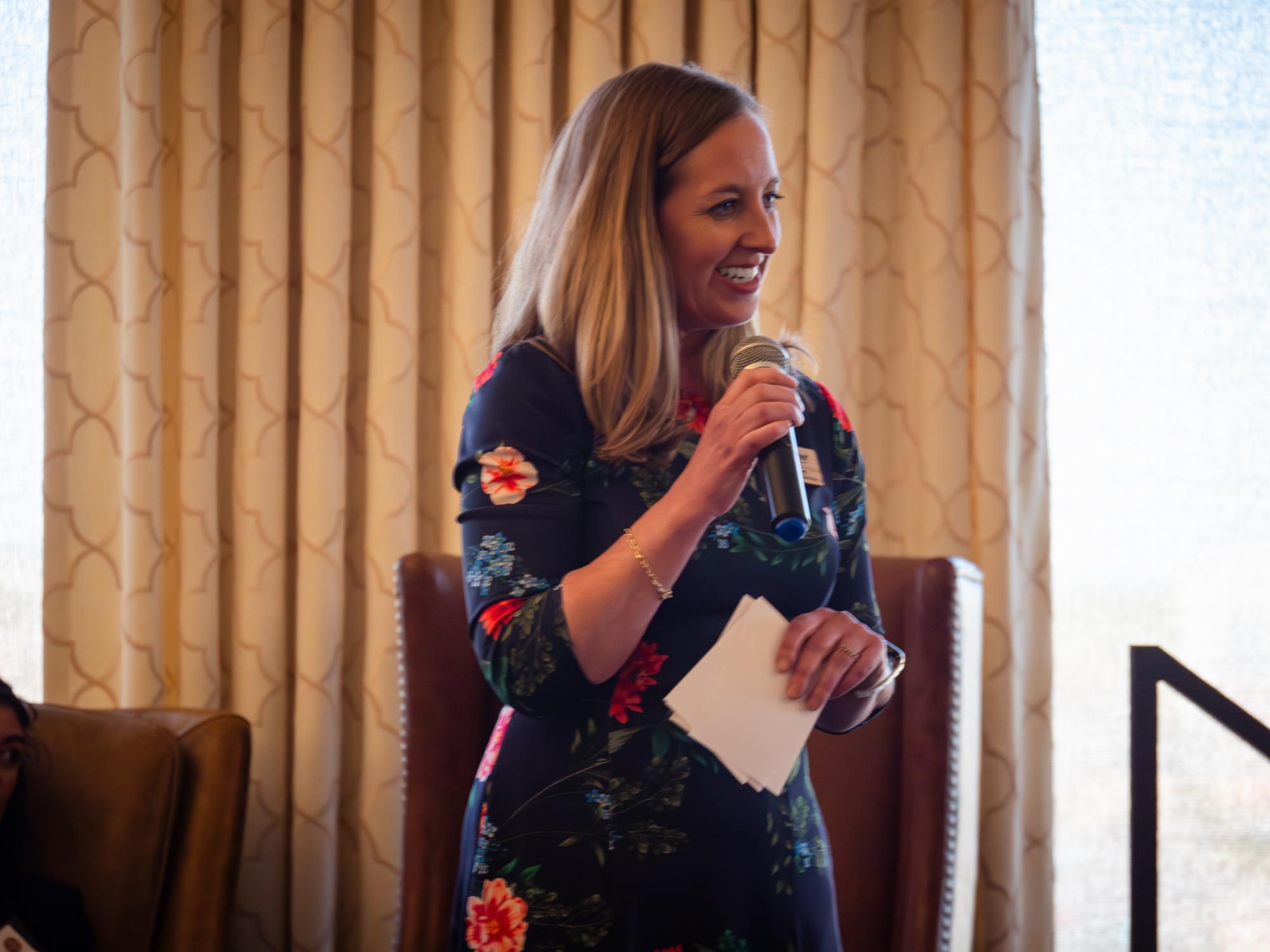
TENACITY: Women in Conservation demonstrated that conservation is not a solitary pursuit but a community endeavor that thrives on diverse perspectives and collaborative action. From urban planners to archaeologists, from food justice advocates to youth mentors, the speakers illustrated how conservation serves as the thread connecting our communities.
As we face many challenges that sometimes feel overwhelming, the evening offered a refreshing dose of optimism. As Patience put it, "If we don’t have hope, what do we have?" This spirit of idealism, coupled with pragmatic action and inclusive vision, points toward a conservation movement that truly belongs to all.
Whether you're a longtime advocate or just beginning to explore your connection to nature, there's a place for you in this community of stewards. Together, we can protect what makes Colorado special for generations to come.
Learn more and connect to the vital work of these trailblazing speakers, and become a member of Palmer to join a passionate community of land lovers.
